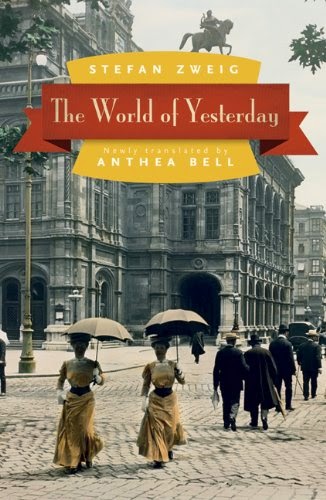Earlier this year, Wes Anderson could be heard discussing the life of Stefan Zweig (1881-1942), whose literary works helped shape the storyline of Anderson's movie The Grand Budapest Hotel. Whether you see Zweig's influence or not, Anderson did a great service in promoting a long neglected writer. In his time, Zweig was a widely read and popular author with an international following. An Austrian-Jew, European culture was the center of his world, a world that collapsed with the rise of Nazi-socialism. Zweig fled to London, then New York, and finally to Brazil where he committed suicide. His posthumous autobiography, The World of Yesterday, was published in English in 1943. It's a book in which Zweig holds a mirror to the past, recounting a changing society, remembering friendships from Herzl to Freud, and sharing, with nostalgia and grace, a world lost forever. Europe's fate, and his own, is inescapable and suggested in the closing paragraph: "Homeward bound I suddenly noticed before me my own shadow as I had seen the shadow of the other war behind the actual one. During all this time it has never budged from me, that irrevocable shadow..."
For anyone interested in the life and legacy of Stefan Zweig, there is no better place to start than The World of Yesterday. Then read the novellas, the short stories, the biographies and the essays of Stefan Zweig. More and more of them are being republished as readers rediscover one of the most universally admired writers of the early 20th-century.

No comments:
Post a Comment